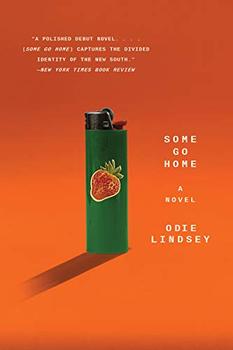Summary | Excerpt | Reviews | Beyond the Book | Read-Alikes | Genres & Themes | Author Bio

This article relates to Some Go Home
 In Some Go Home, author Odie Lindsey references then-presidential candidate Ronald Reagan's "states' rights" speech as the vehicle that "had re-radicalized Hare's power, breathing life into his limp narrative." Lindsey implies that the candidate's speech allowed the fictional character Hare Hobbs to create an illusion of power for himself by working along with others to suppress the civil rights movement surrounding them. The author aptly notes that Reagan had "issued formal cover for their cause." Indeed, many white voters construed the speech, which criticized federal social initiatives such as welfare, as tacit approval of racism and classism. Reagan's bid for presidency, as well as the Republican party's desire for control, served as the impetus for his controversial, and, some might argue, ill-intended speech in the Deep South.
In Some Go Home, author Odie Lindsey references then-presidential candidate Ronald Reagan's "states' rights" speech as the vehicle that "had re-radicalized Hare's power, breathing life into his limp narrative." Lindsey implies that the candidate's speech allowed the fictional character Hare Hobbs to create an illusion of power for himself by working along with others to suppress the civil rights movement surrounding them. The author aptly notes that Reagan had "issued formal cover for their cause." Indeed, many white voters construed the speech, which criticized federal social initiatives such as welfare, as tacit approval of racism and classism. Reagan's bid for presidency, as well as the Republican party's desire for control, served as the impetus for his controversial, and, some might argue, ill-intended speech in the Deep South.
The speech was delivered on August 3, 1980 at the Neshoba County Fairgrounds in Philadelphia, Mississippi. The choice of venue seemed highly calculated, given that the city of Philadelphia was the setting for the callous killings of three civil rights workers in 1964, and was historically pockmarked with Ku Klux Klan activity. Reagan did not acknowledge the area's sordid past. He mentioned young Olympic hopefuls instead of honoring the young men who the KKK ruthlessly hunted down and shot: James Chaney, Andrew Goodman and Mickey Schwerner. The heart of Reagan's speech was geared towards devaluing national regulation in favor of states' rights, a concept that some believe served as a coded message that he would not interfere with racist acts and systems, and a dictate around which many white Southern voters rallied.
In his novel, Lindsey references the Southern Strategy, an approach used by the Republican party starting in the 1960s. This approach involved Republicans taking increasingly conservative views on matters of race in an attempt to win over white Southerners who had traditionally voted Democrat but who disapproved of the party's support of civil rights. Republicans hoped to marginalize the Democratic party and their perceived liberal views on race through rhetoric such as that appearing in Reagan's speech. A common rally cry echoing from the speech was "I believe in states' rights," as this phrase could support the ideals of white citizens hoping to further their own self-interests and personal causes. As a result of the strategy's success, historically Democratic Southern states began to align with the Republican party.
In retrospect, many view Reagan's speech as thinly veiled racism, a deliberate ploy to get the racist vote. In his work Empire of Illusion, Chris Hedges refers to the effectiveness of political manipulation in modern times, asserting that "the most essential skill in political theater... is artifice. Political leaders, who use the tools of mass propaganda to create a sense of faux intimacy with citizens, no longer need to be competent, sincere, or honest."
Have American politics simply become a game of wizardry and wordsmithing? A pageantry of sorts? It would appear that the voter of today who wishes to be well-informed needs to look beyond the political surface and examine the entire milieu.
Top to bottom: James Chaney, Andrew Goodman and Michael Henry "Mickey" Schwerner, civil rights workers killed by the Ku Klux Klan in June, 1964 in Philadelphia, Mississippi. Source: FBI
Filed under Society and Politics
![]() This "beyond the book article" relates to Some Go Home. It originally ran in August 2020 and has been updated for the
July 2021 paperback edition.
Go to magazine.
This "beyond the book article" relates to Some Go Home. It originally ran in August 2020 and has been updated for the
July 2021 paperback edition.
Go to magazine.
Your guide toexceptional books
BookBrowse seeks out and recommends the best in contemporary fiction and nonfiction—books that not only engage and entertain but also deepen our understanding of ourselves and the world around us.